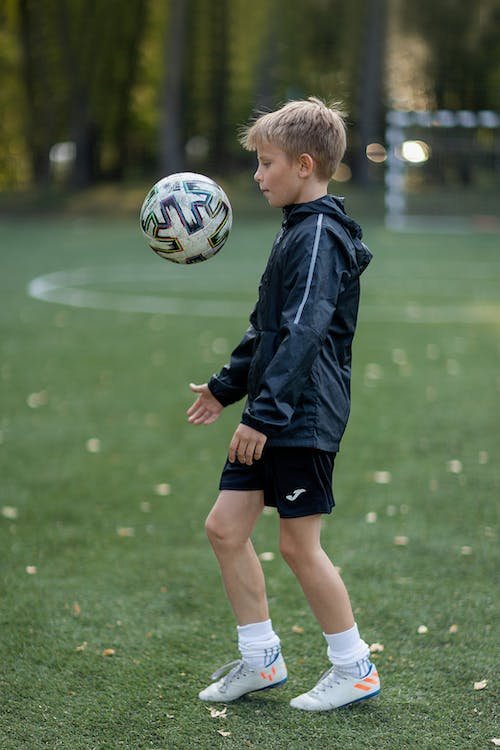Lothar Matthäus Quits Youth Coaching: How Overzealous Parents Are Ruining Youth Sports
As parents, we want the best for our kids. We dream big for them, hoping they can achieve what we couldn’t. But sometimes, this desire can become overwhelming, especially in youth sports. Imagine handing your child over to a coach with an elite resume—someone who has reached the pinnacle of their profession. You’d think they’re in the best hands, right? Now, imagine if that coach was none other than Lothar Matthäus, one of the greatest soccer players of all time. In the world of soccer, it’s hard to find someone with a more illustrious career. But, surprisingly, even a living legend like Matthäus can be driven to frustration when dealing with one of youth sports' most notorious problems: parents.
For American parents who may not be as familiar with Matthäus, think of him as the Tom Brady or Michael Jordan of soccer—someone who won everything there was to win. Matthäus is a soccer icon, having captained Germany to a World Cup victory in 1990, won numerous domestic titles, and collected a laundry list of personal accolades. His legacy as a player is bulletproof. But when he stepped into the role of coaching youth soccer, even his impressive credentials couldn’t shield him from the harsh realities of dealing with over-involved parents.
Matthäus last week stepped down from coaching a U13 team in Germany, and the reasons are all too familiar to those involved in American youth sports. It wasn’t the kids that drove him away—it was their parents. “I had two very successful years as a coach,” Matthäus explained after his resignation, “the kids didn’t give me any trouble—only their parents.”
Sound familiar? It should. Across youth sports, whether it's soccer, basketball, baseball, or football, the dynamic is often the same. Parents who live vicariously through their children, pushing them beyond reason, with expectations that are not only unrealistic but also harmful.
The “Next Messi” Syndrome
We’ve all seen it. Parents shouting from the sidelines, coaching from the stands, second-guessing every decision the coach makes, convinced their child is destined to be the next Lionel Messi or LeBron James. In Matthäus’ case, these parents thought their kids were the future of German soccer, but the reality could apply to any sport in the U.S.
“The parents have become Bundesliga coaches,” Matthäus said after his resignation, referencing Germany’s top professional soccer league. “Every parent thinks their child is Messi. There’s a positive ambition, but it has become obsessive. I would get calls from them from 7 a.m. until midnight. As a coach, I was shocked because it was all complaints and demands.”
If this sounds extreme, it’s not far off from what we see here in the States. Whether it's football moms in Texas or basketball dads in Indiana, many youth coaches face similar pressure. Parents track their kids’ playing time like it's the NBA Finals, demand special treatment, and forget that youth sports are meant to be fun and educational.
A Nationwide Issue: Parental Pressure in Youth Sports
In the U.S., youth sports have become a multi-billion-dollar industry. From travel teams to private coaching, parents spend thousands of dollars every year hoping to give their kids an edge. According to a 2019 report by WinterGreen Research, the youth sports industry in America was valued at over $19 billion, surpassing even the NFL. Parents hire private trainers, invest in the best gear, and spend weekends traveling for tournaments. But in their quest for excellence, many lose sight of what’s most important: the child’s happiness and development.
Like in Germany, American youth sports are also plagued by parent-coach conflicts. Stories of parents fighting with coaches, officials, and even other parents are all too common. It’s not unusual to see physical confrontations at Little League baseball games or parents berating referees at youth basketball tournaments. The pressure to turn a child into the next great sports superstar has led to toxic environments that take away from the enjoyment of the game.
The Emotional Toll on Coaches and Players
Matthäus, with all his accolades and experience, couldn’t bear it any longer. “When the kids would lose and start crying in the locker room, the parents would leave it to me to comfort them,” he said. “In recent months, with the team’s successes, it just became unbearable. The WhatsApp group turned into a cesspool of insults and accusations in front of the children. It was a hideous concentration of jealousy. It sucked all the fun out of coaching for me.”
Coaches of all levels face this type of pressure, but it’s especially prevalent in youth sports. In the U.S., it’s no different. Many youth coaches are volunteers—parents themselves—who want to give back to the community. But the constant harassment and unrealistic demands from other parents make it a thankless job. It’s no wonder that youth sports have a coach retention problem. A 2019 study from the Sports & Fitness Industry Association found that nearly 70% of youth coaches quit after just a few seasons, citing parental interference as a major reason.
This pressure doesn’t just affect the coaches; it also weighs heavily on the kids. Instead of enjoying the sport and learning valuable life lessons like teamwork and perseverance, children are subjected to the overwhelming ambitions of their parents. It’s no surprise that nearly 70% of kids in the U.S. quit organized sports by the age of 13, according to the Aspen Institute’s Project Play.
The High Costs and False Expectations
In America, the financial commitment parents make to their children’s sports careers is staggering. From private coaches to sports-specific training programs, many parents pour thousands into their child’s development, convinced they’re raising the next superstar. In reality, less than 1% of high school athletes in the U.S. will ever make it to the pros. For soccer, that number is even lower. Despite these odds, parents continue to invest in travel leagues, personal trainers, and specialized camps.
Matthäus highlighted this issue, pointing out the absurd lengths parents go to: “Parents have too much time and privilege to feel they can interfere with my role as a football coach. No one would dare do that to a school teacher,” he said. “My father came to see me play maybe five times. But here, after winning three consecutive championships, parents still think they know better.”
The Takeaway: Let Kids Be Kids
What Lothar Matthäus experienced in Germany is a reflection of a global problem in youth sports. Parents, with the best intentions, often push their children too far, too fast, trying to mold them into something they may never become. In doing so, they rob their kids of the simple joys of playing the game and learning along the way.
For American parents, coaches, and organizations, Matthäus' story should serve as a cautionary tale. Let kids be kids. Let them enjoy the game for what it is, without the pressure of unrealistic expectations. As Matthäus wisely concluded, "I will never coach children's teams again... It was a complete waste of time." Hopefully, his words will resonate with parents worldwide and lead to a healthier environment for young athletes to grow and thrive—on their terms.





















